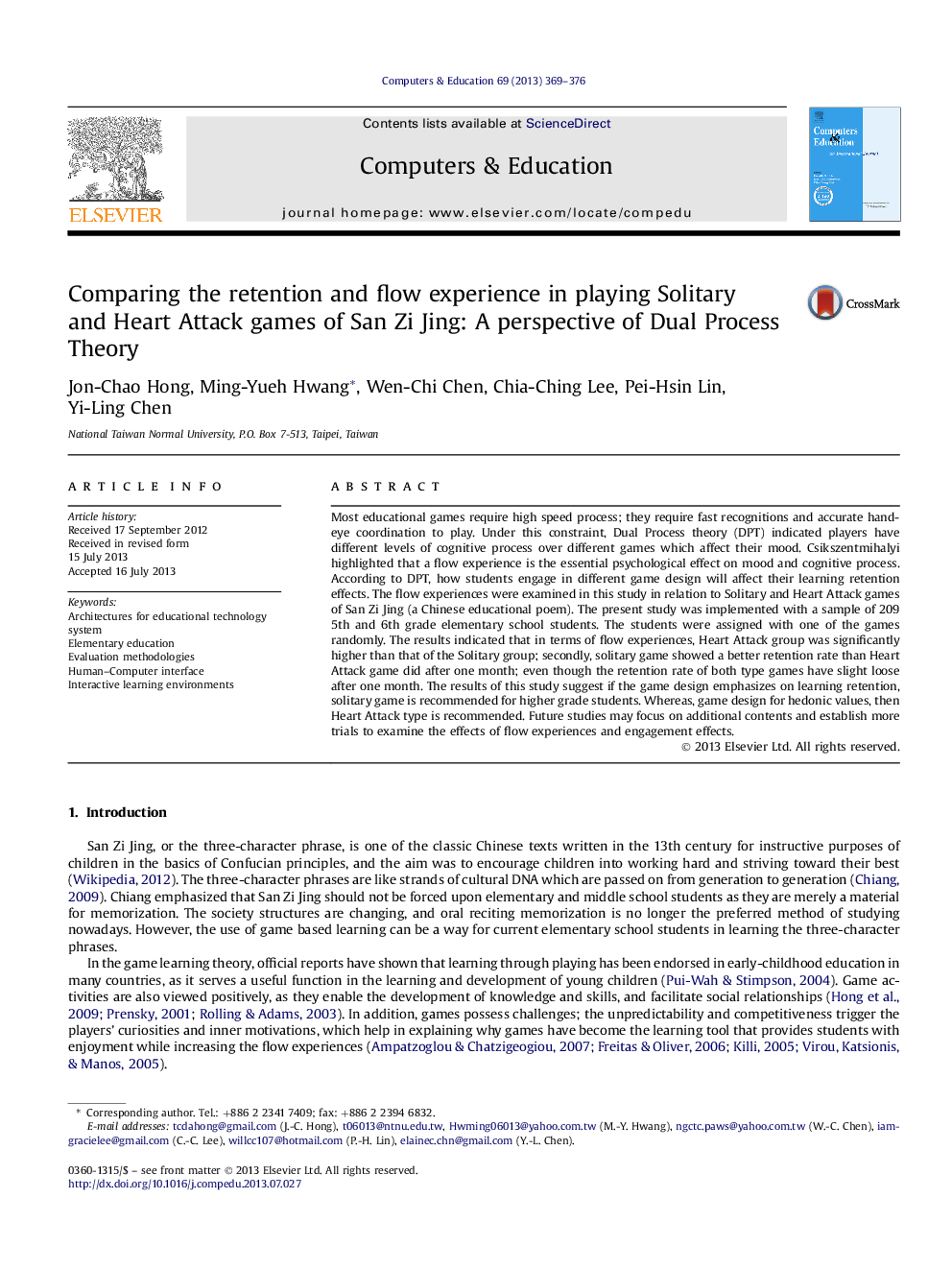| Article ID | Journal | Published Year | Pages | File Type |
|---|---|---|---|---|
| 6835489 | Computers & Education | 2013 | 8 Pages |
Abstract
Most educational games require high speed process; they require fast recognitions and accurate hand-eye coordination to play. Under this constraint, Dual Process theory (DPT) indicated players have different levels of cognitive process over different games which affect their mood. Csikszentmihalyi highlighted that a flow experience is the essential psychological effect on mood and cognitive process. According to DPT, how students engage in different game design will affect their learning retention effects. The flow experiences were examined in this study in relation to Solitary and Heart Attack games of San Zi Jing (a Chinese educational poem). The present study was implemented with a sample of 209 5th and 6th grade elementary school students. The students were assigned with one of the games randomly. The results indicated that in terms of flow experiences, Heart Attack group was significantly higher than that of the Solitary group; secondly, solitary game showed a better retention rate than Heart Attack game did after one month; even though the retention rate of both type games have slight loose after one month. The results of this study suggest if the game design emphasizes on learning retention, solitary game is recommended for higher grade students. Whereas, game design for hedonic values, then Heart Attack type is recommended. Future studies may focus on additional contents and establish more trials to examine the effects of flow experiences and engagement effects.
Keywords
Related Topics
Social Sciences and Humanities
Social Sciences
Education
Authors
Jon-Chao Hong, Ming-Yueh Hwang, Wen-Chi Chen, Chia-Ching Lee, Pei-Hsin Lin, Yi-Ling Chen,
